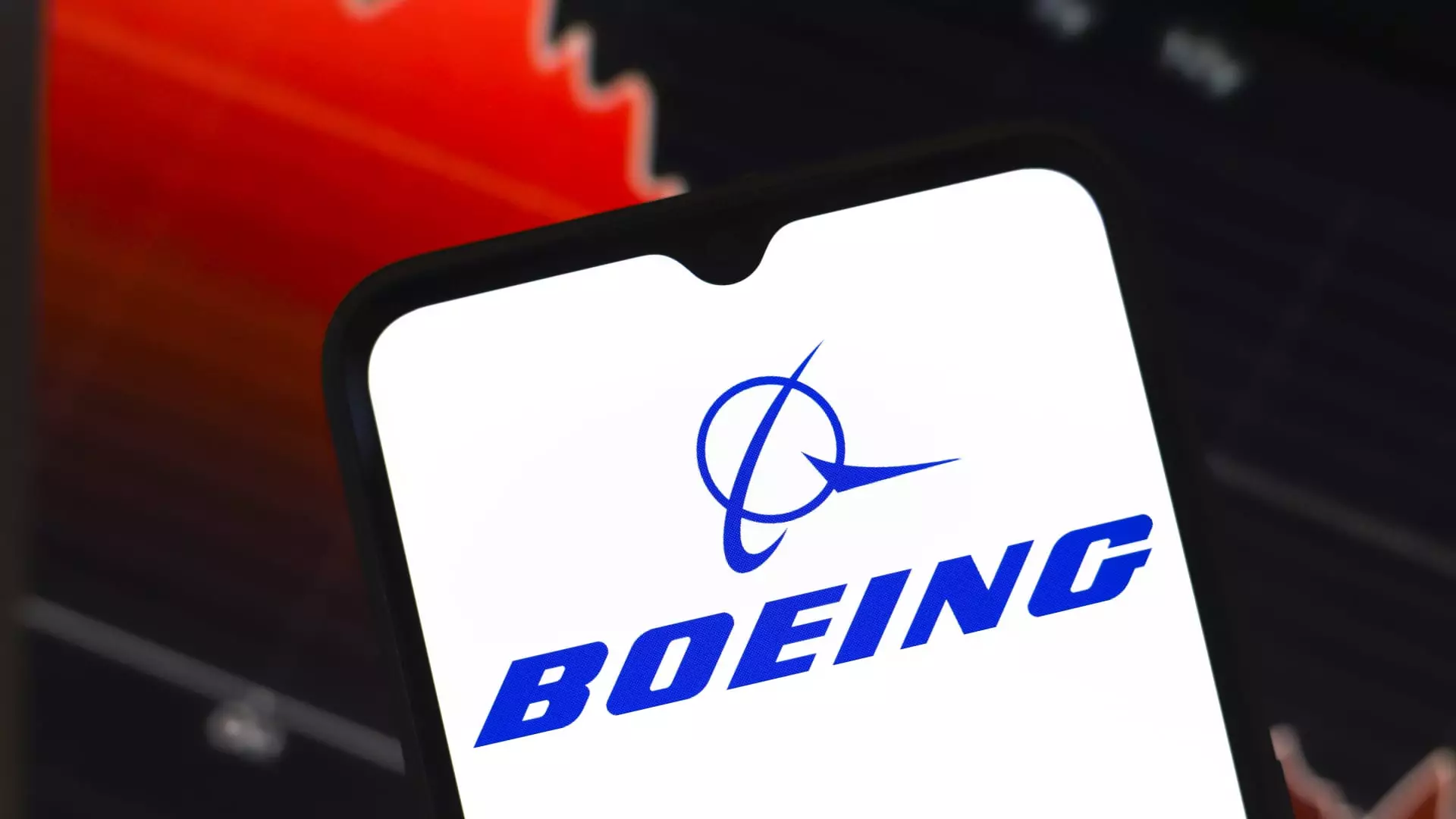In an evolving investment landscape, quality control has emerged as a crucial factor that can substantially influence a company’s fortunes. This was exemplified last year when Boeing’s stock suffered a staggering 32% decline. The dual pressures of ongoing quality control concerns and a machinists’ strike painted a bleak picture for the aerospace giant. Yet, despite these challenges, there is a compelling argument for considering Boeing’s stock as an enticing opportunity for investors looking at its recovery potential. Tim Seymour, founder and chief investment officer of Seymour Asset Management, recently shared his insights on CNBC’s “Power Lunch,” asserting that investors should not overlook the possibilities presented by Boeing.
Indeed, Boeing’s journey has seen a remarkable resurgence since plummeting to a low of $138.14 late last year. With a remarkable rebound of nearly 34% since that nadir, Seymour has articulated a promising perspective on the company’s future. He believes that now, more than ever, is not the time to sever ties with Boeing. Instead, investors should adopt a forward-looking approach. Seymour highlighted that the company is on the path to overhaul its operations, essential for restoring its financial health. His assertion that Boeing is poised to become free cash flow positive by 2026 buttresses the argument for retaining a position in the stock. By the end of 2025, he anticipates that the groundwork for this transition will be laid, positioning Boeing to emerge as a strong cash-generating entity in the years to come.
Turning attention to CVS Health, the company has not been immune to market fluctuations, registering a dramatic 43% decline last year. However,4 the onset of the new year has been refreshing, with CVS’s shares soaring nearly 47% in the wake of a satisfying fourth-quarter earnings report. Reporting an adjusted earnings per share of $1.19 on an impressive revenue of $97.71 billion, CVS surpassed industry expectations and began to establish itself as a turnaround story. Seymour lauded the company’s recent leadership changes, particularly the induction of new CEO David Joyner. His strategic focus on enhancing margins within Aetna’s health insurance operations could spell a turning point for CVS. Given that it has navigated a tumultuous couple of years, recent developments suggest that the groundwork for recovery is in place.
In stark contrast to the positive narratives surrounding Boeing and CVS, Seymour painted a less favorable picture for Intel. Having experienced a staggering 60% decline last year and with hovering uncertainties about its strategic direction, Intel’s challenges are formidable. Despite a modest 24% increase following positive remarks about U.S. commitment to defending its tech sector, Seymour voiced a sense of disillusionment with the company. He expressed that Intel seems directionless, lacking the visionary leadership required for a turnaround. Investors might find themselves justified in giving Intel a wide berth until a clear strategy and effective leadership are established.
As we navigate a complex economic environment marked by fluctuations, investors must weigh the merits of various stocks against their potential for recovery. The recent sentiment surrounding Boeing and CVS Health demonstrates that even after periods of decline, stocks can reestablish themselves as valuable investments when underpinned by sound management and strategic initiatives. Meanwhile, companies like Intel serve as reminders of the importance of leadership and direction in steering a firm towards success.
While the uncertainties in the market may prompt caution, the narratives surrounding Boeing and CVS Health are indicative of the potential rewards for investors willing to conduct thorough research and maintain a long-term perspective. The investment landscape remains dynamic, and staying attuned to company fundamentals and managerial effectiveness could provide key insights for navigating future opportunities.

